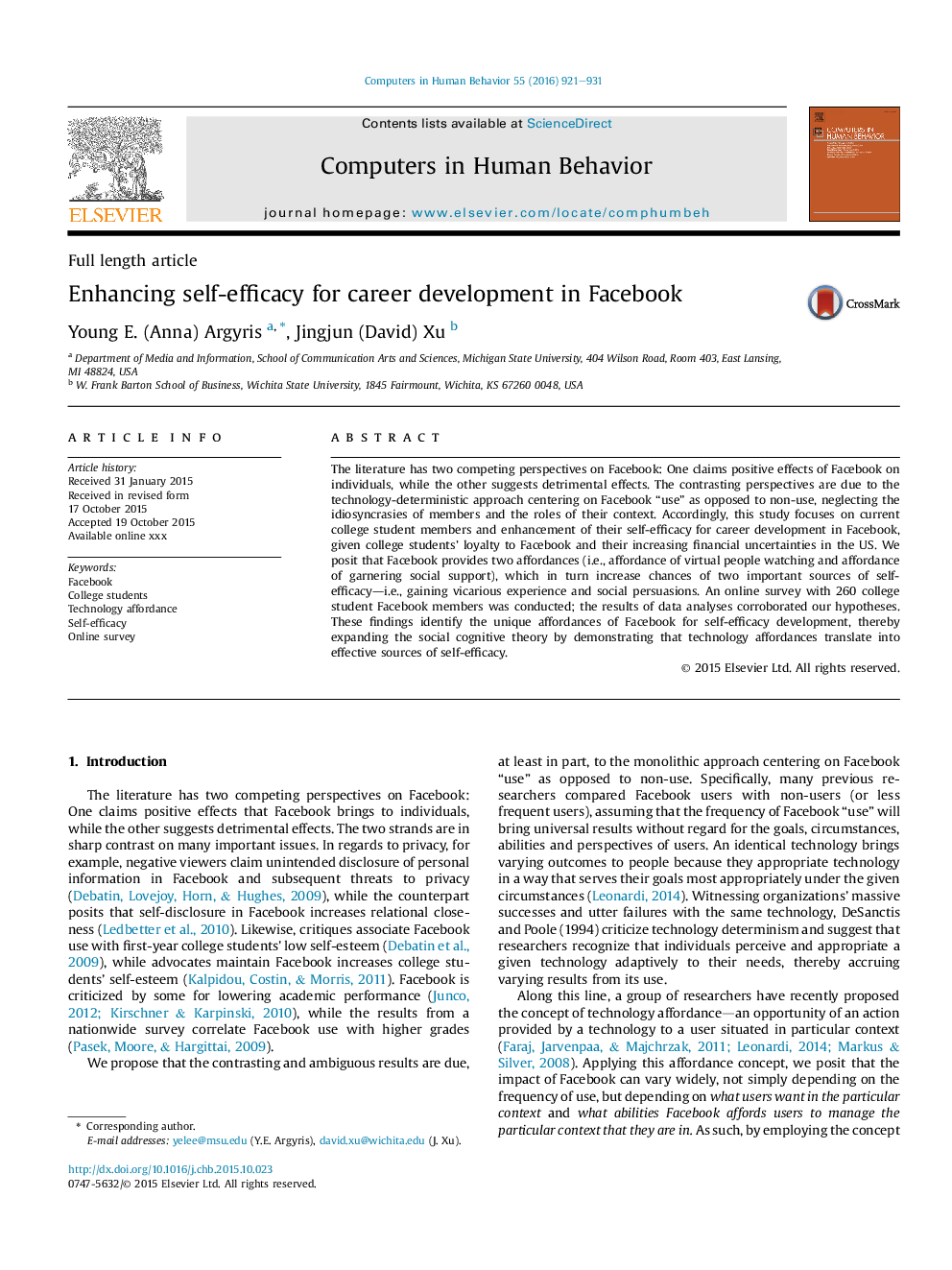| Article ID | Journal | Published Year | Pages | File Type |
|---|---|---|---|---|
| 10312723 | Computers in Human Behavior | 2016 | 11 Pages |
Abstract
The literature has two competing perspectives on Facebook: One claims positive effects of Facebook on individuals, while the other suggests detrimental effects. The contrasting perspectives are due to the technology-deterministic approach centering on Facebook “use” as opposed to non-use, neglecting the idiosyncrasies of members and the roles of their context. Accordingly, this study focuses on current college student members and enhancement of their self-efficacy for career development in Facebook, given college students' loyalty to Facebook and their increasing financial uncertainties in the US. We posit that Facebook provides two affordances (i.e., affordance of virtual people watching and affordance of garnering social support), which in turn increase chances of two important sources of self-efficacy-i.e., gaining vicarious experience and social persuasions. An online survey with 260 college student Facebook members was conducted; the results of data analyses corroborated our hypotheses. These findings identify the unique affordances of Facebook for self-efficacy development, thereby expanding the social cognitive theory by demonstrating that technology affordances translate into effective sources of self-efficacy.
Related Topics
Physical Sciences and Engineering
Computer Science
Computer Science Applications
Authors
Young E. (Anna) Argyris, Jingjun (David) Xu,
